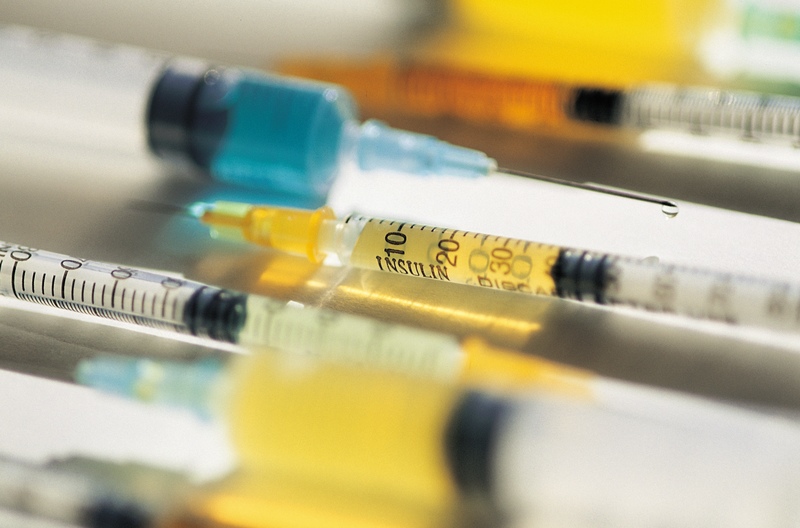
Here are some of the latest health and medical news developments, compiled by the editors of HealthDay:
Obama Reaffirms Abortion Funding Restrictions
President Barack Obama signed an executive order Wednesday afternoon that reaffirms restrictions on federal funding of abortions.
Obama promised to sign the order in exchange for Democratic abortion opponents’ critical support in getting the health-care reform bill passed on Sunday, the Associated Press reported.
Members of the Democrats’ anti-abortion group, including leader Rep. Bart Stupak of Michigan, were invited to the signing, the news service said.
—–
Genzyme Faces FDA Oversight
Biotechnology company Genzyme will be fined for recent manufacturing problems and the U.S. Food and Drug Administration will more closely monitor operations at the company’s Boston plant.
A Genzyme news release said the FDA would likely issue a consent decree “under which a third party would inspect and review the factory’s operations for an extended period and certify compliance with FDA regulations,” The New York Times reported.
Last June, viral contamination forced Genzyme to close its Boston factory, resulting in a continuing shortage of two major products, both treatments for rare diseases: Cerezyme for Gaucher disease and Fabrazyme for Fabry disease, the newspaper said.
In November, Cerezyme, Fabrazylme and three other drugs made in part at Genzme’s Boston factory were contaminated with steel, rubber or fiber particles, the Times reported.
—–
Many Treatment Centers Don’t Offer Disease Screening
On-site infectious disease screening was available at less than half of U.S. substance abuse treatment facilities included a 2007 nationwide survey, says a new study sponsored by the Substance Abuse and Mental Health Services Administration.
“Arranging for screenings for infectious diseases should be a routine part of substance abuse treatment services,” SAMHSA Administrator Pamela S. Hyde said in a news release. “People enter treatment for different needs and screening provides an opportunity to identify additional health-care needs as part of the recovery process.”
Failure to identify and treat infectious diseases such as HIV, tuberculosis, hepatitis, and sexually transmitted diseases threatens the health of infected people and the community.
Among the study findings:
- Substance abuse facilities most likely to provide infectious disease screening were operated by the federal government, followed by a state government.
- Of the approximately 1,000 opioid treatment programs, more than half provided on-site screening for tuberculosis (93.3 percent), HIV (69.8 percent), sexually transmitted diseases (67.8 percent), hepatitis C (64.1 percent), or hepatitis B (62.1 percent).
- Screening for hepatitis B, hepatitis C, HIV, sexually transmitted diseases, or tuberculosis was more likely to be offered at facilities that provided hospital inpatient treatment than at facilities that offered outpatient or non-hospital residential treatment.
—–
Infantino Baby Slings Recalled Due to Deaths
The deaths of three infants have prompted the recall of more than one million baby slings made by Infantino, says the U.S. Consumer Product Safety Commission.
The agency said babies can suffocate in the soft-fabric “SlingRider” and “Wendy Bellissimo” slings and warned parents to immediately stop using the slings for babies younger than 4 months old, the Associated Press reported.
The recall includes one million Infantino slings in the United States and 15,000 in Canada.
Infantino will offer affected consumers a free replacement baby carrier, activity gym or shopping cart, the AP reported.
—–
Bill Aims to Reduce Junk Food in U.S. Schools
American schoolchildren may have less access to junk food under a bill approved Wednesday by the Senate Agriculture Committee.
The legislation would allow the U.S. Agriculture Department to create uniform standards for all foods in schools, including products in vending machines, the Associated Press reported.
That could mean less pizza, chips and other junk food will be available in schools across the nation.
The bill, which also would increase the number of low-income children eligible for free or reduced-cost meals, is supported by health advocates and many food companies, the AP reported.
But, Congressional action is just the first step. Many of the tough decisions — such as determining what kinds of foods will be sold — will be made by the Agriculture Department, the news service said.
—–
NIMH Chief Targets Ties Between Psychiatrists, Drug Industry
Psychiatrists’ financial links with the drug industry have created a “culture of influence” that needs to be ended, says the chief of the U.S. National Institute of Mental Health.
In a commentary published Wednesday in the Journal of the American Medical Association, Dr. Thomas Insel doesn’t accuse researchers of being corrupt or ask them to stop accepting money from drug companies, the Associated Press reported.
However, Insel notes that American psychiatrists have a “bias in prescribing practices” that favors brand-name drugs over cheaper generic drugs and non-drug treatments.
Insel called for new standards of transparency and full disclosure of psychiatrists’ dealings with the drug industry.
“We can show the rest of medicine how to clean up our act,” Insel told the AP.

